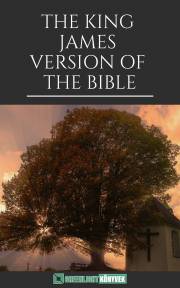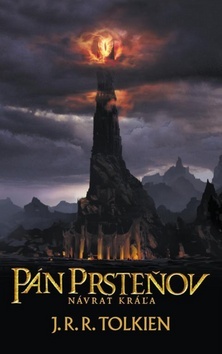The King James Version of the Bible - King James Version Authorized
Knihu kúpite v
1 e-shope
od
2,81 €
Panta Rhei
2,81 €
Skladom
(dodanie do 3 dní)
Krátky popis
The King James Version (KJV), also known as the King James Bible
(KJB) or simply the Authorized Version (AV), is an English
translation of the Christian Bible for the Church of England, was
commissioned in 1603 and completed as well as published in 1611
under the sponsorship of James VI and I. The books of the King
James Version include the 39 books of the Old Testament, an
intertestamental section containing 14 books of the Apocrypha, and
the 27 books of the New Testament. Noted for its "majesty of
style", the King James Version has been described as one of the
most important books in English culture and a driving force in the
shaping of the English-speaking world. It was first printed
by John Norton & Robert Barker, both the King's Printer, and was
the third translation into English approved by the English Church
authorities: The first had been the Great Bible, commissioned in
the reign of King Henry VIII (1535), and the second had been the
Bishops' Bible, commissioned in the reign of Queen Elizabeth I
(1568). In Geneva, Switzerland the first generation of Protestant
Reformers had produced the Geneva Bible of 1560 from the original
Hebrew and Greek scriptures, which was influential in the writing
of the Authorized King James Version. In January 1604, King
James convened the Hampton Court Conference, where a new English
version was conceived in response to the problems of the earlier
translations perceived by the Puritans, a faction of the Church of
England. James gave the translators instructions intended to
ensure that the new version would conform to the ecclesiology of,
and reflect the episcopal structure of, the Church of England and
its belief in an ordained clergy. The translation was done by 6
panels of translators (47 men in all, most of whom were leading
biblical scholars in England) who had the work divided up between
them: the Old Testament was entrusted to three panels, the New
Testament to two, and the Apocrypha to one. In common with most
other translations of the period, the New Testament was translated
from Greek, the Old Testament from Hebrew and Aramaic, and the
Apocrypha from Greek and Latin. In the Book of Common Prayer
(1662), the text of the Authorized Version replaced the text of the
Great Bible for Epistle and Gospel readings (but not for the
Psalter, which substantially retained Coverdale's Great Bible
version), and as such was authorized by Act of Parliament. By
the first half of the 18th century, the Authorized Version had
become effectively unchallenged as the English translation used in
Anglican and English Protestant churches, except for the Psalms and
some short passages in the Book of Common Prayer of the Church of
England. Over the course of the 18th century, the Authorized
Version supplanted the Latin Vulgate as the standard version of
scripture for English-speaking scholars. With the development of
stereotype printing at the beginning of the 19th century, this
version of the Bible became the most widely printed book in
history, almost all such printings presenting the standard text of
1769 extensively re-edited by Benjamin Blayney at Oxford, and
nearly always omitting the books of the Apocrypha. Today the
unqualified title "King James Version" usually indicates this
Oxford standard text.

